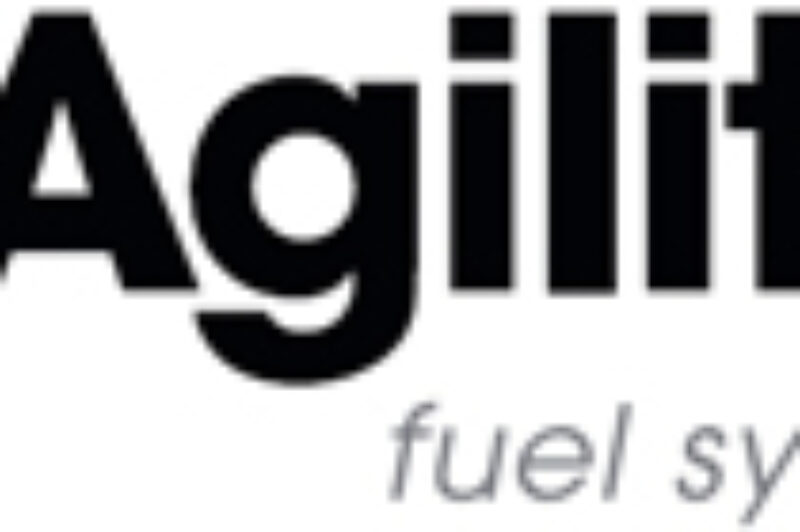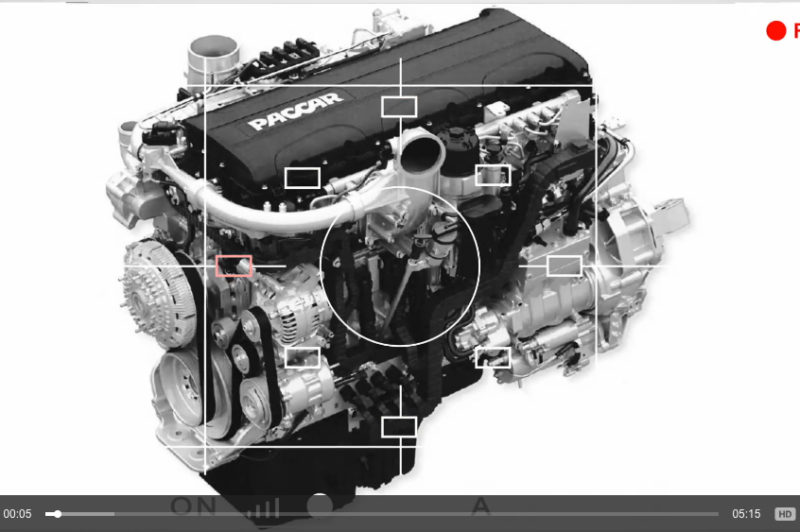
engines

IN PRINT — Power Plays: A look at 2017 engines
Most North American heavy-duty diesel engine manufacturers rolled out substantially revamped engines to meet the U.S. Environmental Protection Agency's (EPA's) 2017 Greenhouse Gas emissions regulations. Those rules were the final step for diesel engines in Phase 1 of the grand carbon dioxide reduction plan. Engine makers now have a few years to figure how to meet the next - and even more restrictive - round of fuel-efficiency improvements, which come into force for Model Year 2021 engines.
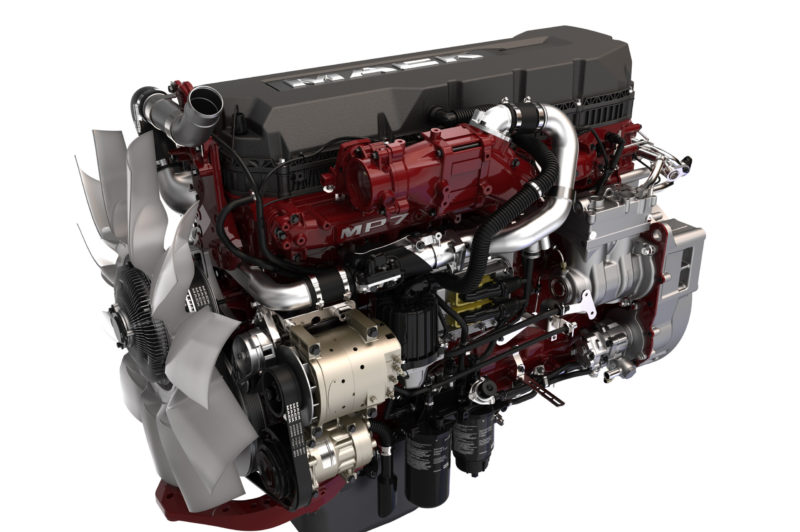
Mack boosts fuel economy under Earth Day backdrop
AUSTIN, TX - Mack Trucks' choice of the setting and day to unveil a series of powertrain upgrades was no coincidence. Austin, Texas is known for its music and barbecue, but is also recognized as one of the Top 10 greenest cities in the U.S. And April 22 marks Earth Day. Collectively, they offered a fitting backdrop for changes made in the name of fuel economy. The 2017 Mack MP engine lineup will see fuel economy jump between 2.1 and 8.8% compared to today's models, while a new Predictive Cruise will effectively memorize terrain and enhance shifts when routes are repeated. Engine upgrades include a common rail fuel system, and turbo compounding that tranforms waste heat into torque on the camshaft. Fuel-saving enhancements have certainly put the engines on a diet. The common rail fuel system, widely used in Europe, allows for an assembled camshaft that is 27 pounds lighter than its single-piece predecessor. The MP8's cylinder block is also 44 pounds lighter than today's models. Even when turbo compounding is introduced on the MP8, the engine is still 33 pounds lighter than existing models.
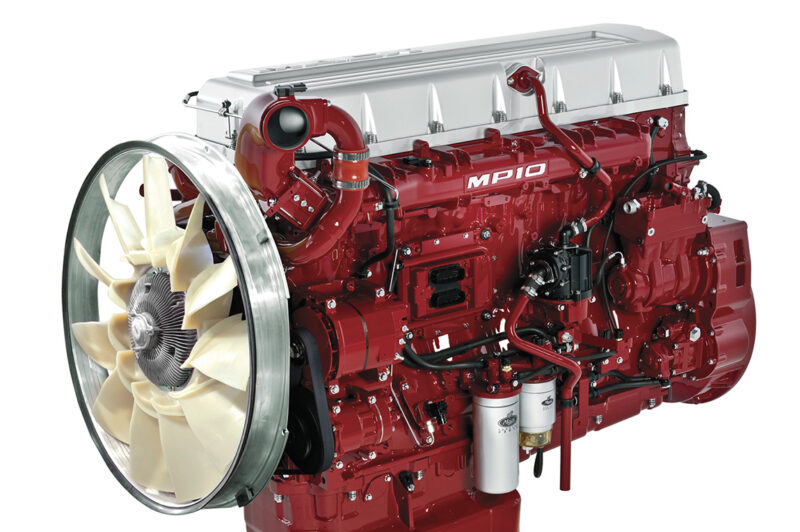

Cummins Gets U.S. Regulatory OK for Engine Lineup
COLUMBUS, IN -- Cummins Inc. on Monday announced that it received certification for its complete lineup of on-highway diesel and natural gas engines from the U.S. Environmental Protection Agency (EPA), meeting both the current EPA regulations and the second step in greenhouse gas (GHG) and fuel-efficiency standards which take effect in January 2017. Fuel efficiency is improved across the commercial vehicle engine lineup from 5.0 liters to 15 liters. "Cummins is committed to providing customer-focused innovation as soon as it is ready," said Amy Boerger, vce president of sales and support. "For example, efficiency improvements implemented in the 2016 ISX15 400 hp to 475 hp ratings will provide customers with fuel economy gains over the 2013 ISX15, ranging from 2.5 percent on the base engine up to 7.5 percent with a SmartAdvantage Powertrain with ADEPT SmartCoast features."
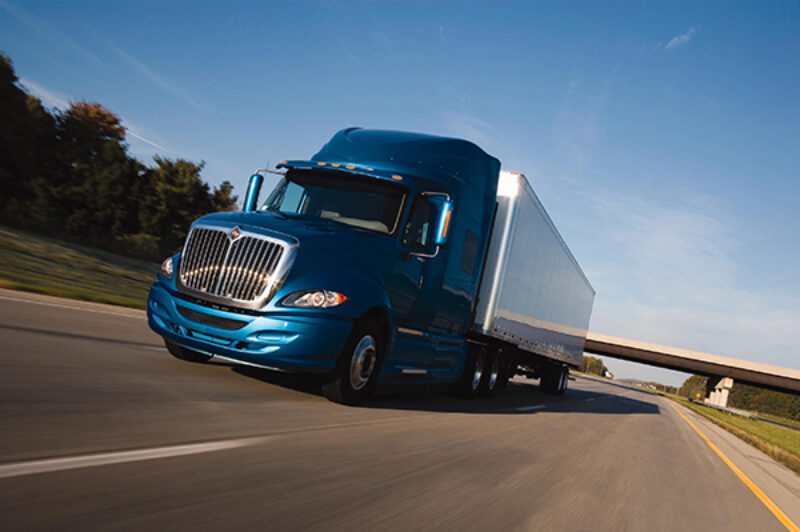
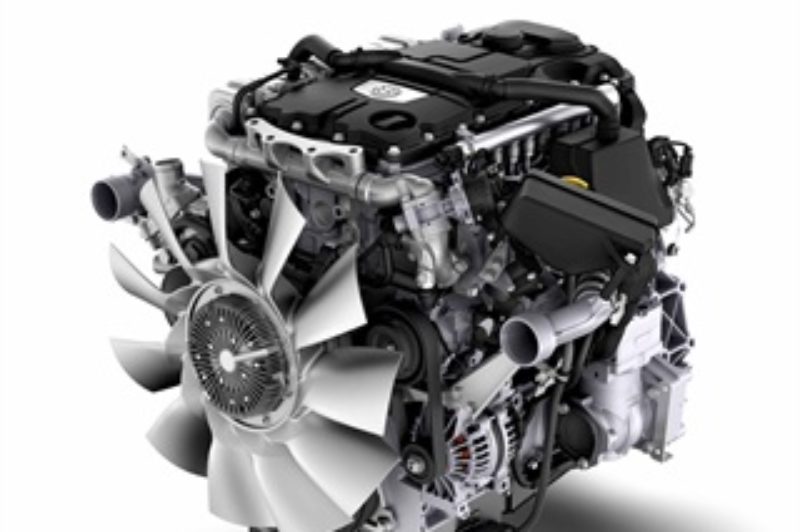
Daimler Trucks to Make New Medium Duty Engines in Detroit
DETROIT, MI -- Daimler Trucks on Friday announced it is making a big financial investment to enable production of the new Detroit DD5 and DD8 medium duty engines at Detroit's headquarters and manufacturing facility in Redford, MI. Joined by Michigan Governor Rick Snyder, and nearly 2,000 United Auto Workers employees, the company celebrated the announcement of the new lines of DD5 and DD8 medium duty engines and officially launched production of the company's Detroit DT12 automated manual transmission, previously manufactured in Germany. The new engines, first announced at the 2014 American Trucking Associations annual conference, will be available in select Daimler Truck North America vehicles by the end of 2016.
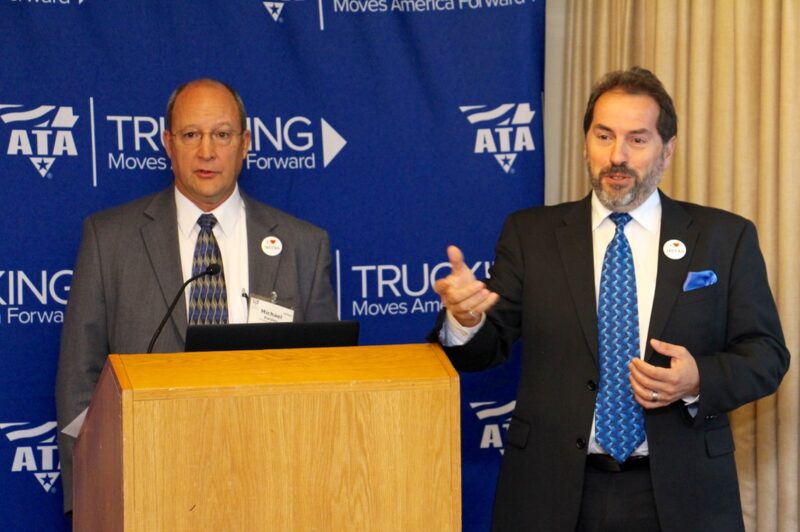
PIT Group Boosting U.S. Testing Presence
PHILADELPHIA, PA and MONTREAL, QC - A Canadian engineering and research group for the North American trucking industry announced at the 2015 American Trucking Associations' (ATA) Management Conference and Exhibition this week the opening of a U.S. office and a significant increase in its presence in the United States. Performance Innovation Transport (PIT) Group is opening an office in Atlanta, GA and is adding the U.S. as the location for road testing of its technology certification process known as Energotest. Using stringent SAE/TMC testing protocols, PIT Group will now hold two Energotest events in Canada and two in the U.S. each year. "PIT Group has become the benchmark for precise, verified and unbiased data on the return on investment fleets can expect from green technologies in Canada," said Yves Provencher, director of PIT Group. "With the continual need to improve competitiveness and the increase in environmental compliance restrictions, the demand for green technologies has never been stronger. Our U.S. office will enable us to offer the level of service and experience we've been providing Canadian fleets and that U.S. fleets expect."
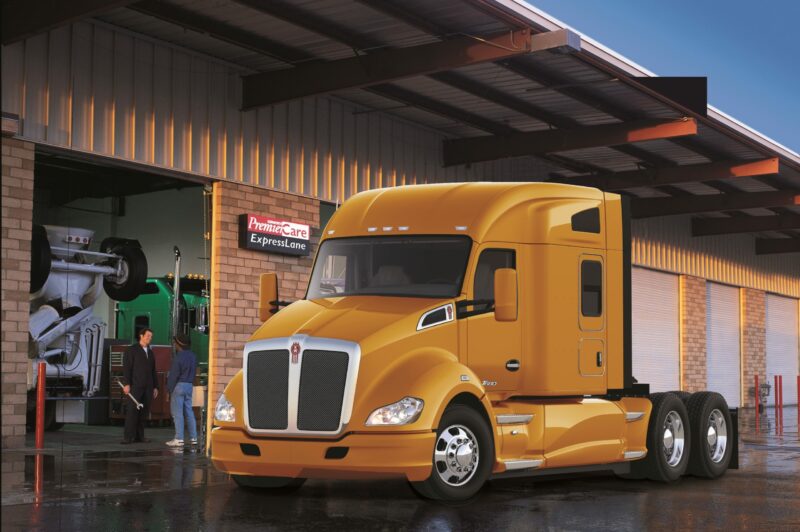
Kenworth Unveils New Services, Products at ATA
PHILADELPHIA, PA - Kenworth Truck Co. made a number of announcements in Philadelphia on Saturday, just before the start of the American Trucking Associations annual Management Conference and Exhibition while also saying its pulling out of a major trucking event next year.
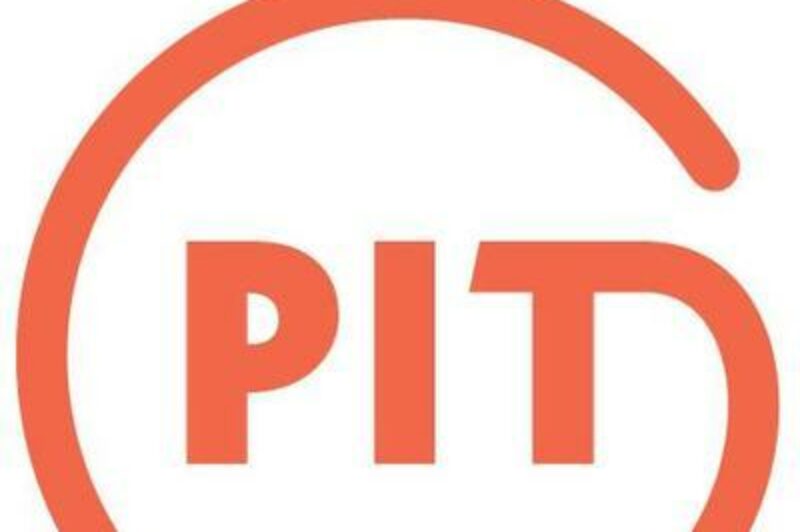
New Report Questions Truck Engine Fuel Use Data
MONTREAL, QC -- Relying on the electronic data from a truck's engine computer may not be the most accurate gauge of fuel economy, according to a not-for profit engineering and research group for the North America trucking industry. The report from Performance Innovation Transport Group (PIT Group) details electronic control module (ECM) data precision and accuracy between engine manufacturers and among engine models from a single manufacturer. The study compares engine ECM data with actual test track fuel consumption and was conducted in the fall of 2014 on 14 different vehicles with engines from four manufacturers. The test track evaluations, which followed the Joint TMC/SAE Fuel Consumption Test Procedure Type II, compared fuel consumption data provided by the engine ECMs, a procedure that is generally regarded as an industry standard for testing.
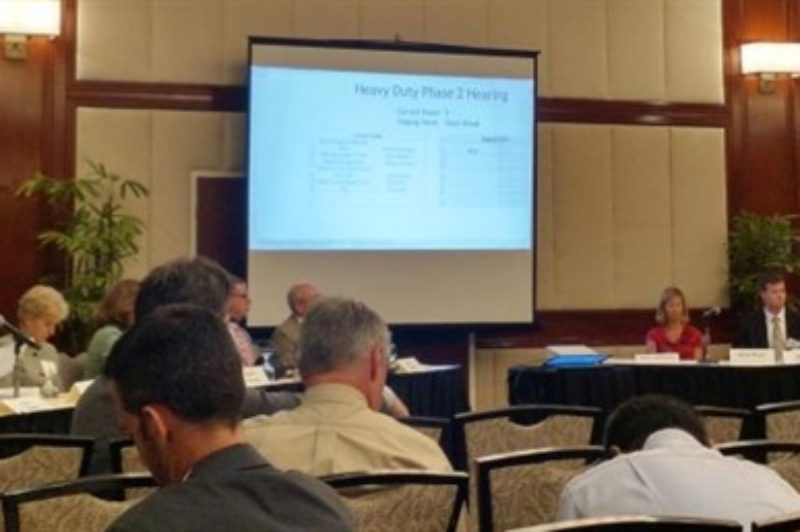
Concerns at U.S. GHG Hearing, Canada Expected to Adopt
LONG BEACH, CA - Proposed regulations, expected to adopted by Canada, regarding U.S. greenhouse gas emissions (GHG) and fuel efficiency standards for medium- and heavy-duty trucks were the focus of a public hearing on Tuesday in California. Officials from the U.S. Environmental Protection Agency (EPA) and National Highway Traffic Safety Administration (NHTSA) held the event to gather comments about their joint proposal. An earlier hearing was held this month in Chicago. Representatives from government and environmental agencies, manufacturers, fleets and other related organizations were allowed five minutes each to make a public statement on the proposed Phase 2 GHG rules as currently outlined. A panel of top members from EPA and NHTSA listened and posed clarifying questions.
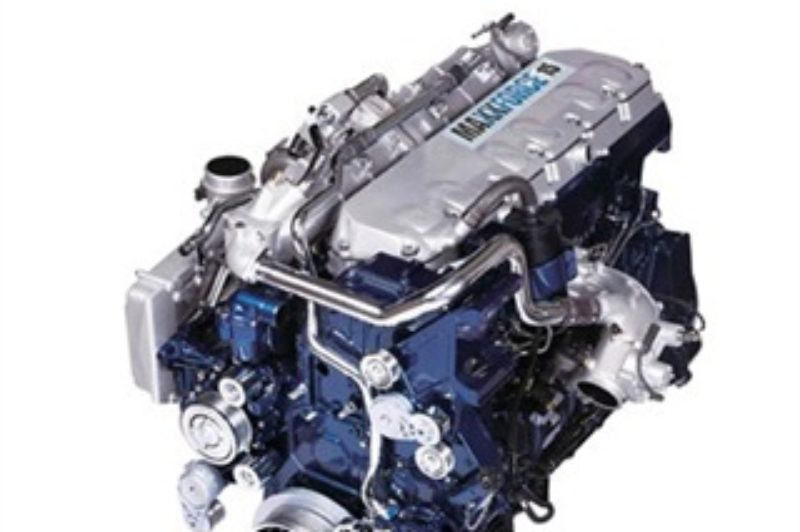
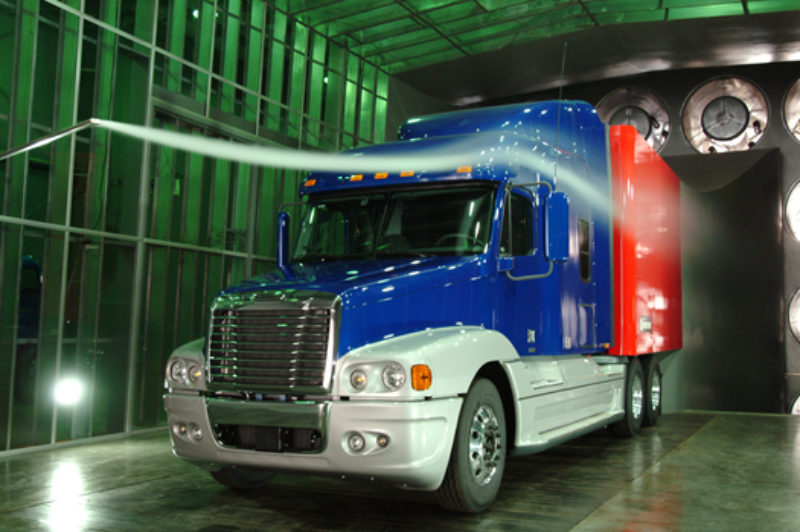
New Rules Rely On Yet Unproven Technology: ATA
WASHINGTON, D.C.-- Industry reaction to the proposal announced Friday by the U.S. Environmental Protection Agency (EPA) and the Department of Transportation's National Highway Traffic Safety Administration (NHTSA) to improve fuel efficiency and cut carbon pollution for medium-duty and heavy-duty trucks has been swift and more positive than negative in tone. The plan for the 2021-2027 models years, which also calls for trailers to be subject to fuel efficiency and greenhouse gas standards for the first time, drew support from the American Trucking Associations, but the fleet group said it remains concerned the rule may result in the use of certain technologies on vehicles before they can be fully tested.

Nat-Gas Engine Unveiled as Some Wonder About Its Future
VANCOUVER, B.C -- Cummins Westport Inc. is broadening its offerings in natural gas engines for commercial vehicles as some are wondering what the future holds for this alternative fuel in the wake of lower diesel prices. The ISB6.7 G model is a 6.7 liter medium-duty, factory built, dedicated engine for medium duty truck and vocational applications as well as for school bus and shuttle bus applications. It's based on Cummins ISB6.7 diesel engine platform. This new model will operate exclusively on compressed natural gas (CNG) or liquefied natural gas (LNG), using Cummins Westport's proprietary spark-ignited, stoichiometric combustion with cooled exhaust gas recirculation (SEGR) technology, first introduced with the 8.9 liter ISL G model engine. The ISB6.7 G features three-way catalyst aftertreatment, which is packaged as a muffler and is maintenance-free. No diesel particulate filter or selective catalytic reduction after-treatment will be required, according to the company.
